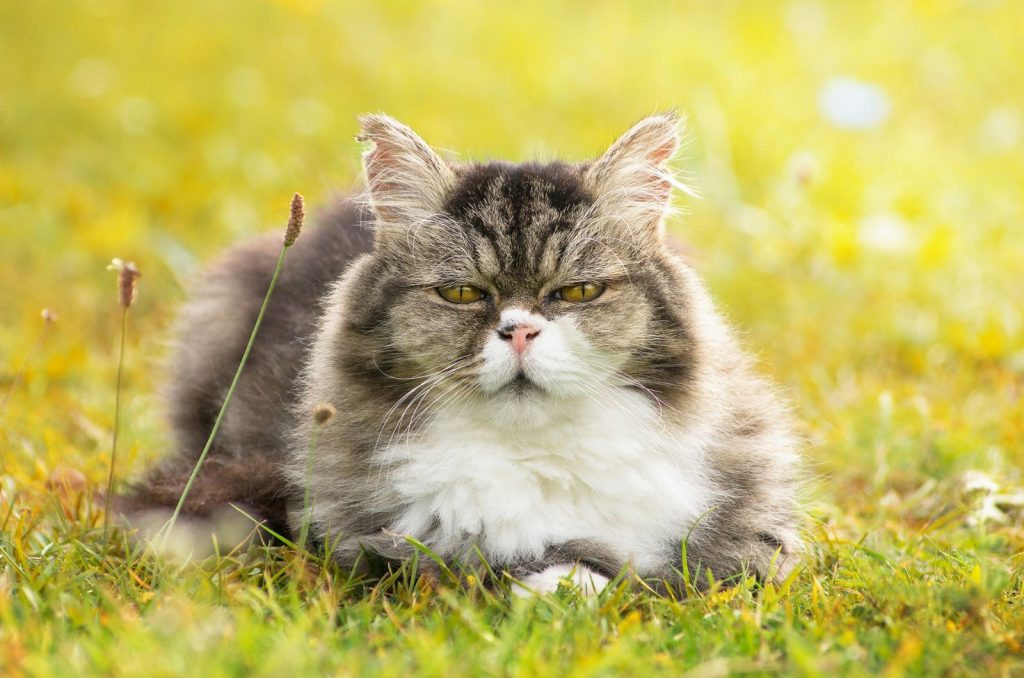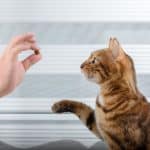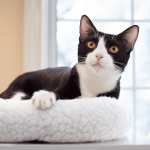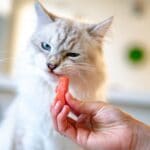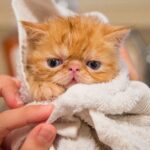Once a kitten grows out of its adorable phase, the adult cat goes on to lead a happy life lounging about, sleeping, and being waited upon hand and foot by its owner. Just like humans, however, pets age and eventually enter their senior years. At this point, a cat needs more help and attention than ever before. As such, the following should be kept in mind for elderly cats:
First and most importantly, make sure the cat is taken to frequent veterinarian visits; these should be at least once a year, though more often would not hurt. Elderly cats are more susceptible to developing feline diabetes, cancer, arthritis, and other afflictions. Taking the cat to the vet regularly not only makes sure that your pet is up to date with treatments for current illnesses and its shots, but it also means that any new problems are caught early.
Second, make sure your cat is not stressed at home. Age can lead to a lot of changes for your pet: steps may be harder to traverse; going outside may stop being an adventure and start being a challenge; or climbing onto the couch could be too painful to bother with anymore. Keep a close eye on your cat and see what sort of behavioral changes it makes. If she stops using the litterbox, she may not be acting ornery; perhaps she is no longer able to jump into it anymore.
If he wants you to pick him up and carry him places now, he may not be playing affectionate; maybe it hurts too much to go upstairs. Look at what your cat can and cannot do comfortably anymore and rearrange its habitat to remove any difficult obstacles or terrain.
Next, check the kind of food you give your cat. Some cats get picky as they get older and will only eat certain types of food. Others may need the benefit of specially created formulas for older cats. Some may need hairball control food, for instance. The best way to determine the most beneficial food for your cat is to get an opinion from your veterinarian and then experiment. Try a few different types and see what helps your cat the most or what your cat likes the most.
In addition, be careful with the amount of food given to elderly cats. As cats age, they do not play as often as kittens, so they do not use as much energy or require as much sustenance. Giving a cat the same amount of food that it ate when it was younger may just lead to the cat stuffing itself and gaining weight or vomiting. An overweight cat is more prone to diabetes and other illnesses, and vomiting not only makes a mess on the carpet, but it also can hurt the cat’s teeth and mouth. Make sure the cat gets enough food to stay healthy without overfeeding it.
Lastly, an owner of an older cat needs to bear in mind that he/she is going to have to be a lot more active in the care of the pet. Cats tend to care for themselves, in the most part, when it comes to grooming, bodily functions, and even minor injuries. However, as a cat ages, cleaning fur and being able to make it to the litterbox in time becomes more of a challenge. Owners may have to start giving the cat regular baths if the pet can no longer bend to reach its back or hind end. Frequent brushing can keep fur clean and lessen the occurrence of hairballs.
Overall, owners of elderly cats have to remember to be understanding. Humans need more help as they get older; cats are no different.
Cats can be a joy to take care of no matter the age. However, as a cat ages, making sure the cat is healthy, safe, and comfortable has to change. Taking care of a pet throughout its lifespan is the responsibility of the owner, and making sure that an older cat gets the attention that it deserves is an important task.

